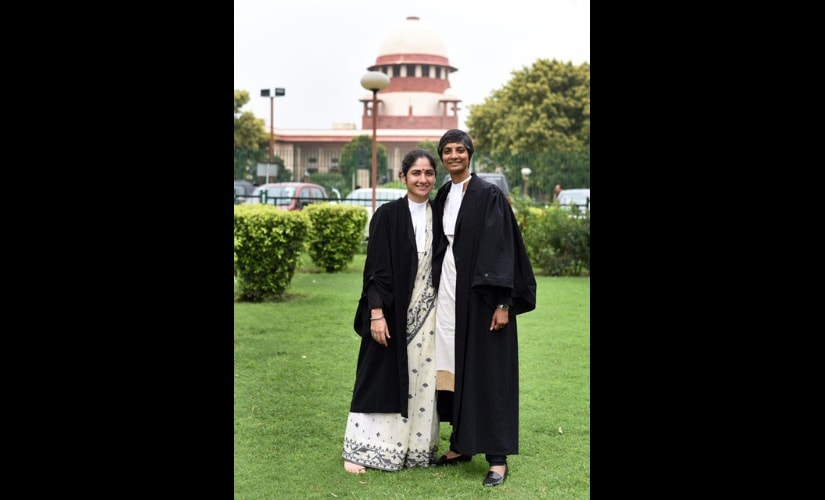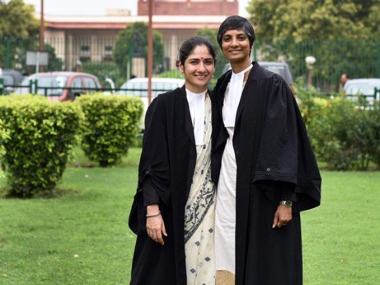On 6 September, 2018, when the Hon’ble judges of the Supreme Court delivered the groundbreaking verdict on the decriminalisation of homosexuality, no one was truly prepared. After the failure of multiple earlier attempts to cause the striking-down of Section 377 of the Indian Penal Code, 1860, it seemed impossible, and at best, a distant dream that LGBT+ Indians would ever have their moment of vindication. But that glorious moment came like that storm in the countryside that you never really hear about in the news until it is too powerful to be ignored, too huge to be forgotten. The courage of the few brave women and men in the course of the proceedings in Navtej Singh Johar & Ors v Union of India & Ors* brought LGBT+ Indians that long-awaited dawn which at once seemed too blinding to be true. But here it was. Mere months after the judgement, at least two coming-out stories have grabbed the country’s attention. In May this year, Olympian sprinter Dutee Chand made international news after coming out under compelling circumstances and creating history as the first openly gay athlete in India. Chand reported being hounded by her family and villagers for her relationship with another young woman. Braving widespread ridicule from her community, she came out to tell her story and made her fellow countrywomen and men take notice. Now, merely weeks later, Menaka Guruswamy and Arundhati Katju, two of the counsels for the petitioners in Navtej Singh Johar, have made history by coming out as a couple, the only openly gay women lawyers in India. [caption id=“attachment_7027481” align=“alignnone” width=“825”]  Arundhati Katju and Menaka Guruswamy. Image via Twitter/@arundhatikatju[/caption] One stops to look around if this is all a dream, for most of us never imagined that we would live to see the day. The fact remains that each and every personal failure and victory of queer Indians, all the blood, sweat and tears, right from the earliest days of the struggle with Bombay Dost and the Humsafar Trust in the 1990s, to the lakhs of LGBT+ lives lost to crippling depression, bullying, forced marriages, extortion, criminal prosecution, physical abuse, even “corrective” rape, have led to this moment. LGBT+ senior citizens, who lived their lives with an unseen longing, today finish the second innings of their lives with their heads held a notch higher. Finally, we have icons that LGBT+ teens in India can look up to. The LGBT+ icons that we all deserve. The journey, however, is never easy. Coming out of the closet is a significant moment in queer lives. A rite of passage, it is often denied to citizens in repressive countries. As of 2019, homosexuality is punishable by death in 14 nations, besides being illegal in many others. In India, until the reading-down of Section 377, coming out of the closet would effectively mean an LGBT+ citizen exposing themselves to the risk of criminal prosecution, punishable by imprisonment for life, or with imprisonment for a term which could extend to ten years, and a fine. Besides the law, deeply entrenched notions of religious morality, procreation and family honour stemming from patriarchy, would effectively isolate LGBT+ citizens from the support system that is the inherent right of every citizen in a mature democracy. Unsurprised, however, some still question the significance of an act of coming out. The psychological trauma of being queer in a tribalistic society like India escapes all but a few. It is understandable, for empathy is a dying virtue and not everyone has had to live a life of anonymity; to be unable to confide in their loved ones about relationships and heartbreak; to be socialised on thousands of hours of entertainment, music and news media that has shown heterosexuality as the norm, with outright absence or, at best, embarrassing caricatures of queer characters. It might perhaps be difficult for someone who has always ‘belonged’ to walk a mile in the shoes of an ‘outsider’, but it is not impossible. It was the courage of a few brave women and men that brought India to the shore of the Section 377 verdict. Today demands the courage of those who haven’t yet braved their own biases, fears and insecurities. It is an opportunity for the triumph of love between fellow citizens, and a moment to value the struggle of queer Indians. “How strongly must we love knowing we are unconvicted felons under Section 377? My Lords, this is love that must be constitutionally recognised and not just sexual acts”. These were the lines during final arguments in Navtej Singh Johar with which Guruswamy moved the courtroom to tears and caused the judges to listen with great intent. Today, with the coming out of her and Katju, LGBT+ women, LGBT+ lawyers and LGBT+ Indians at large bask in this moment of magnificence that lends our struggle, not just a voice but a soulful, reverbing song. Love is an ethereal quality that is the life-force of human relationships but on most occasions transcends words. Love is no slave to human constructs of caste, gender, religion, language and race. Moments like these – love is all at once political, and in the same breath, it is not. It is an act of bravery, in the face of everything that tells love that it is wrong. Today, the colour of love and courage is so unmistakably similar, you couldn’t tell the two apart. In this moment in history, Love is Courage. In this moment in history, Love is Love. *Writ Petition (Criminal) No 76 of 2016
Menaka Guruswamy and Arundhati Katju, two of the counsels for the petitioners in Navtej Singh Johar, have made history by coming out as a couple, the only openly gay women lawyers in India.
Advertisement
End of Article


)
)
)
)
)
)
)
)
)



